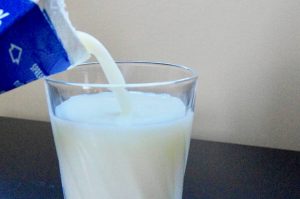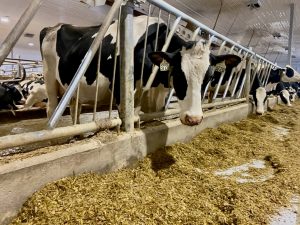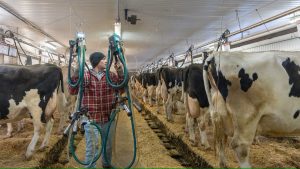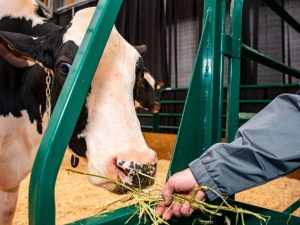
After the 8.4 per cent milk price increase on February 1, dairy product sales stayed strong over the next two months, and have held strong enough to trigger extra quota days.
Compared to the same time period in 2020, cream sales were up 10.2 per cent, cheese up 7.7 per cent, butter at 5.4 per cent, ice cream at 4.6 per cent, yogurt rose 2.9 per cent, and even fluid milk was up .7 per cent.
Daniel Gobeil, President of the Quebec Milk Producers (PLQ), speaking at the recent in-person AGM, said there were initial worries that the opposite would happen with the price increase.
The price increase, “got a lot of publicity” but the producer decision to not apologize and counter the press head on with their own facts, was the right strategy, he said.
Dairy producer COP has increased by 13.4 per cent, and the public experiencing sharp inflationary increases in their overall cost of living understood that, he said.
With milk and dairy product sales staying strong and growing, Gobeil announced extra quota credit days for this year.
Not only has an extra day per month being implemented now, but there will be an extra day in August, two extra quota days for September and October and one extra day for November.
Part of that dramatic COP increase to farmers is their milk transportation costs, which the annual report showed had automatically jumped from 17 cents to 22 cents per litre of milk due to fuel price increases.
The price increase to transporters kicks in two months after fuel prices rise.
In questions from Ontario Farmer to DFO directors present at the meeting, it was confirmed that Ontario has seen the same milk transportation increase and “it isn’t getting better.”
This trucking price rise, plus other sharp, quick increases, has exposed an antiquated system for farm milk prices adjustment, said Gobeil. Feed prices are not factored in until almost two years later in the CDC price calculation and there is no automatic trigger on farms like there is for milk transporters.
“We need to improve the market signals at your farms,” he said. “Your production costs are important.”
The new calculation of Solids Not Fat (SNF) where a producer can maximize their profit ration per kilo of quota, taking effect on August 1, is an attempt to adjust to the new reality where Canada isn’t allowed to export these surpluses, said Gobeil.
CUSMA compensation for dairy producers is a major concern going forward, with the federal government promising an announcement of how much by the end of 2022, said Gobeil. There had been no commitment made in the recent budget, he pointed out.
Canada has ongoing free trade negotiations with the UK, India and Indonesia and while dairy has been assured there will be no fallout, “we were burnt three times,” said Gobeil. “So we are cautious.”
“No trade agreement will be signed at the expense of Quebec’s dairy farmers.”
The UPA are working with Canadian dairy processors to establish a code of practice for that segment of the industry. Under discussion are issues like milk container recycling and where dairy products are placed on the retail shelves.
When the new proposed dairy codes of practice were unveiled later in 2021, the PLQ took immediate action and organized a number of regional meetings to make farmers aware of the ramifications on their tie stall operations, if the codes were implemented as written, said Gobeil.
It resulted in 72 per cent of “wel-documented and solid comments” coming from Quebec. With producers countering the animal rights comments, “you explained what this meant to you,” he said.
Dairy producers have 81 per cent public confidence when it comes to animal welfare. Even if some of the harsh measures in the proposed codes do make the final version in June, “discussions will continue with ProAction,” which is the format used to license producers, said Gobeil.
In the past ProAction has closely followed the codes of practice as a guide.
On another front, “all federal programs are focused on controlling emissions,” said Gobeil. Dairy producers have been put under a spotlight on this issue.
“We can reach social expectations, but we need compensation,” he said.
Speaking in the same city where Quebec’s ACFA head office and safe house is located for farmers suffering from mental health, now at a record high among dairy producers, Gobeil spoke emotionally about the issue.
“We all know farmers we can help,” he said. “We have to take care of each other. Our job is hard.”
“We have to talk about humans as well. When that is problematic, the whole system is destructed.”

























